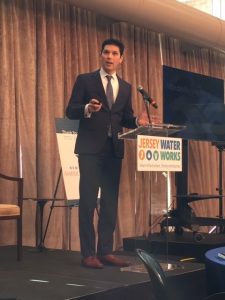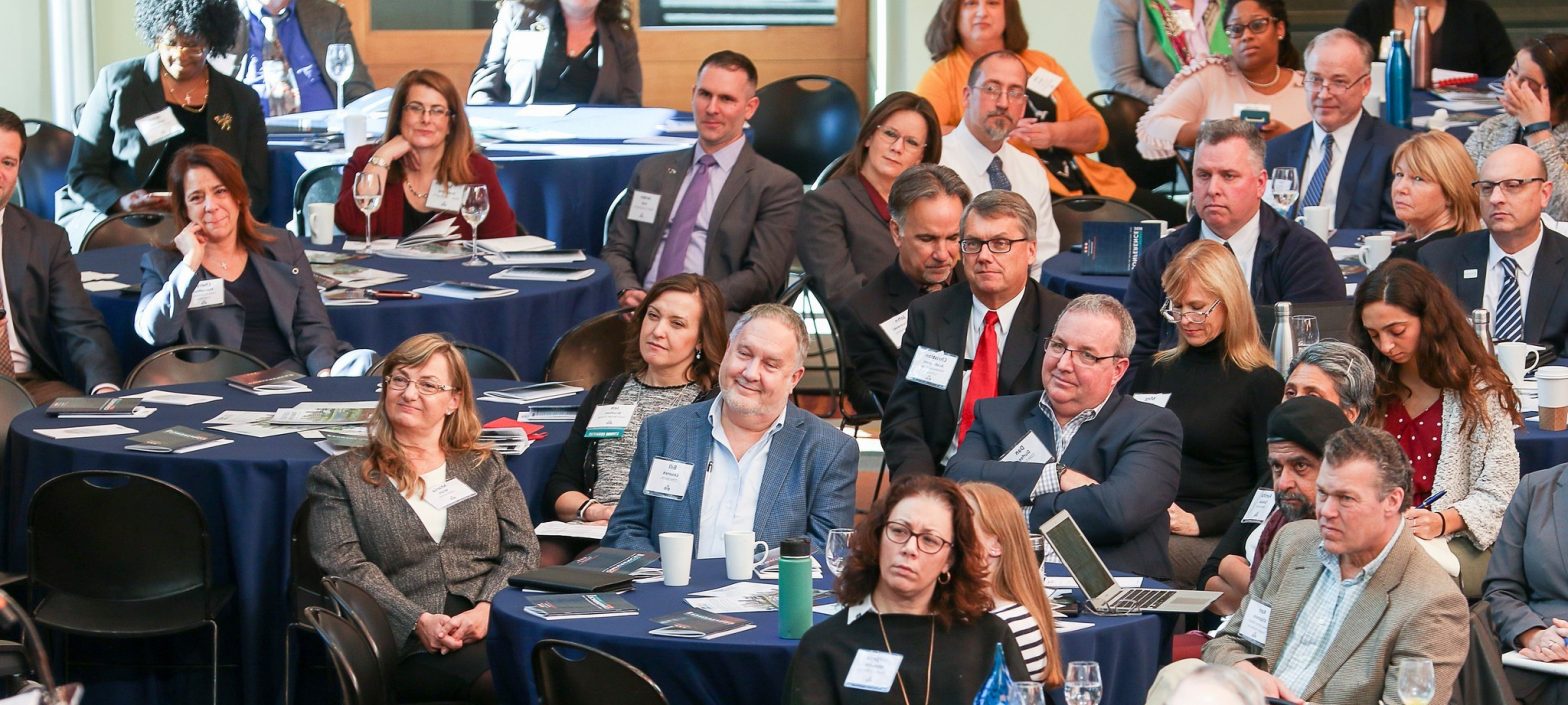If there had been a soundtrack to the annual conference of Jersey Water Works, held last Friday at NJPAC, it could have been the Bob Marley lyric:
“You don’t miss your water ‘til your well runs dry.”

Lester Taylor, one of the conference panelists, found those lyrics to be very motivational back in 2014, when as the newly-elected Mayor of East Orange, he inherited a grossly mismanaged Water Commission and had to take drastic measures to set things right.
Taylor’s story was just one of several hopeful moments in a wide-ranging discussion about the state of New Jersey’s water systems, how to fix them, and perhaps more frustratingly, how to pay for those fixes. Another speaker estimated those costs could run up to forty billion dollars over the next 20 years.

“We’ve got the wallet,” insisted keynote speaker Manuel Teodoro, an Associate Professor at Texas A&M University who shared his research on water repairs, “What we lack is the will.” In a fast-paced and inspiring keynote address to the annual gathering of Jersey Waterworks – a collaboration of state, nonprofit and private organizations who share an interest in making New Jersey’s water infrastructure clean and safe – Teodoro declared access to clean drinking water to be an environmental justice issue: “Violations are most likely in places that are poor and non-white,” he said, citing a recent publication by the American Waterworks Association. He applauded New Jersey for adopting the Water Quality Accountability Act last year, which requires public water systems to implement an asset management plan. He calls it “an opportunity to use data to generate public support for further improvements.”
Bridging the funding gap was the topic of the panel that included Taylor, the former mayor of East Orange. His solution was to raise rates, which he admits required a lot of persuasion. Panelist Margaret Bowman of Spring Point Partners discussed the growing field of “impact investment”, in which investors are looking for social and environmental returns for their money. NJ Senator Bob Smith, chairman of the Senate Energy and Environment Committee, calculated that for no more than $32 per household per year, the state could raise enough funds to bankroll infrastructure improvements at the local level. Senator Smith has sponsored a bill that would allow municipalities to collect fees to cover the costs of stormwater management. Smith is hoping to see some action on that bill in the next couple of weeks.
Everyone in the room agreed those improvements are badly needed. Last year’s Jersey Water Works report, “Our Water Transformed” elaborated on a list of recommendations and priorities for upgrading New Jersey’s drinking, stormwater, and sewage systems.
“It’s a messaging paradox,” explained Howard Neukrug, Executive Director of the Water Center at Penn and moderator of the first panel, on “Our Water Transforming” – “we’re telling people our water is safe to drink and yet we need more money to fix it”.
“It’s a trust problem,” added Nina Gallagher, whose organization ImpactED conducted research on who in Philadelphia won’t drink the tap water, and why. Surprisingly, they found that lower income households were more likely to drink bottled water, despite that fact that the entire process of bottling water can add up to costs more than one thousand times greater than tap water.

A positive note was struck by Andrew Kricun, Executive Director of the Camden County Municipal Utilities Authority a driving force behind Camden SMART (Stormwater Management and Resources Training), one of three awardees of this year’s One Water Awards. Camden SMART, Kricun explained, was just one of several ways his utility went “beyond the core mission” to alleviate several water-related problems at once.
It was a perfect example of what Catherine McCabe, NJ’s Environmental Commissioner, said at the opening of the Jersey Water Works conference: “Challenge is opportunity. We need to get together and brainstorm what we need to do and how to get financing. This is critical to the health of our citizens and the strength of the economy of the state.”
